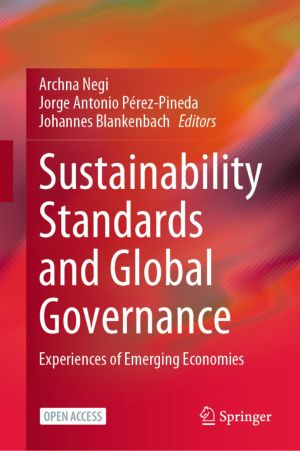
This open book focuses on the issue of sustainability standards from the perspective of both global governance frameworks and emerging economies. It stems from the recognition that the accelerated pace of economic globalization has generated production and consumption patterns that are generating sustainability concerns. Sustainability standards (a...
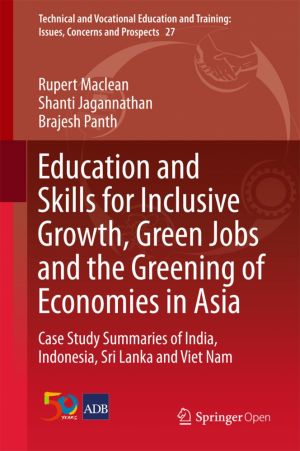
This book presents an overview of the main research findings and case studies concerning education and skills for inclusive growth, green jobs and the greening of economies. Focusing on India, Indonesia, Sri Lanka and Viet Nam, it discusses government and business sector responses to these issues and how Technical and Vocational Education and Train...
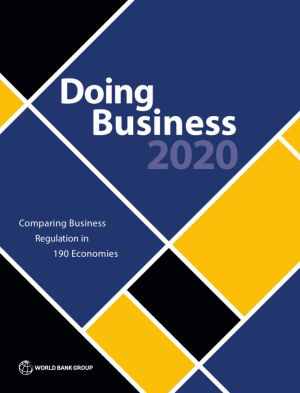
The Doing Business 2020 study shows that developing economies are catching up with developed economies in ease of doing business.
Still, the gap remains wide. An entrepreneur in a low-income economy typically spends around 50 percent of the country's per-capita income to launch a company, compared with just 4.2 percent for an entrepreneur i...
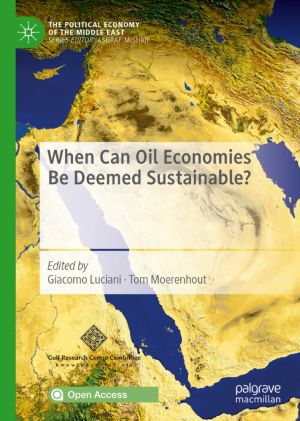
This open book questions the stereotype depicting all Gulf (GCC) economies as not sustainable, and starts a critical discussion of what these economies and polities should do to guarantee themselves a relatively stable future.
Volatile international oil markets and the acceleration of the energy transition has challenged the notion that oil revenu...

This book discusses the risks and opportunities that arise in Emerging Asia given the context of a new environment in global liquidity and capital flows. It elaborates on the need to ensure financial and overall economic stability in the region through improved financial regulation and other policy measures to minimize the emergent risks. "Man...

This book presents theories and case studies for corporations in developed nations, including Japan, for designing strategies to maximize opportunities and minimize threats in business expansion into developing nations. The case studies featured here focus on Asia, including China and India, and use examples of Japanese manufacturers. Five case st...
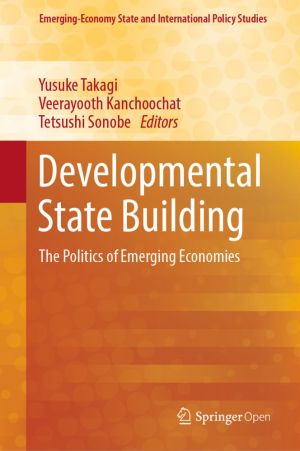
This book modifies and revitalizes the concept of the 'developmental state' to understand the politics of emerging economy through nuanced analysis on the roles of human agency in the context of structural transformation. In other words, there is a revived interest in the 'developmental state' concept. The nature of the 'em...
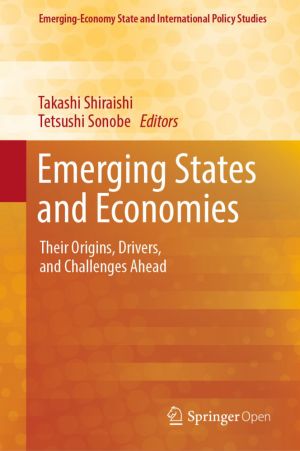
This book asks why and how some of the developing countries have "emerged" under a set of similar global conditions, what led individual countries to choose the particular paths that led to their "emergence," and what challenges confront them. If we are to understand the nature of major risks and uncertainties in the world, we m...

Why should people - and economies - save? This book on the savings problem in Latin America and the Caribbean suggests that, while saving to survive the bad times is important, saving to thrive in the good times is what really counts. People must save to invest in health and education, live productive and fulfilling lives, and make the most of thei...

This book analyses Iberian expansion by using knowledge accumulated in recent years to test some of the most important theories regarding Europe's economic development. Adopting a comparative perspective, it considers the impact of early globalization on Iberian and Western European institutions, social development and political economies. In ...

This open access volume raises awareness of the histories, geographies, and practices of universities and analyzes their role as key actors in today's global knowledge economy. Universities are centers of research, teaching, and expertise with significant economic, social, and cultural impacts at different geographical scales. Scholars from a ...
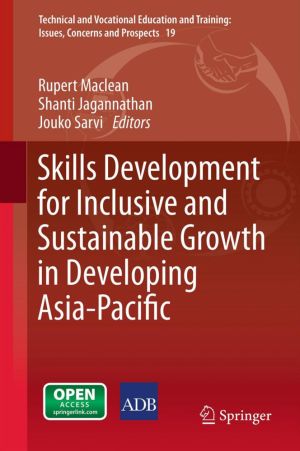
Focusing on the Asia-Pacific region, which in recent years has been the engine of global economic growth , this volume surveys trends and prospects in technical and vocational education and training (TVET) with particular reference to achieving inclusive growth and the greening of economies. Underlying the increasing pressure for new models of TV...

In this updated edition of a groundbreaking text, concepts such as energy return on investment (EROI) provide powerful insights into the real balance sheets that drive our "petroleum economy." Hall and Klitgaard explore the relation between energy and the wealth explosion of the 20th century, and the interaction of internal limits to grow...
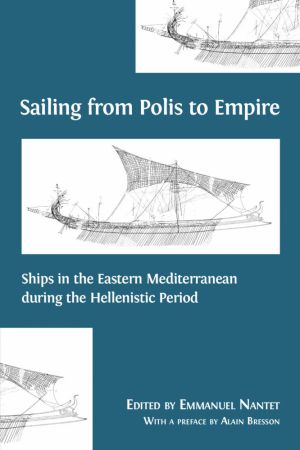
What can the architecture of ancient ships tell us about their capacity to carry cargo or to navigate certain trade routes? How do such insights inform our knowledge of the ancient economies that depended on maritime trade across the Mediterranean?
These and similar questions lie behind Sailing from Polis to Empire, a fascinating insight into th...

New Global Cities in Latin America and Asia: Welcome to the Twenty-First Century proposes new visions of global cities and regions historically considered "secondary" in the international context. The arguments are not only based on material progress made by these metropolises, but also on the growing social difficulties experienced (e.g....

Climate Crisis Economics draws on economics, political economy, scientific literature, and data to gauge the extent to which our various communities - political, economic, business - are making the essential leap to a new narrative and policy approach that will accelerate us towards the necessary transition to a decarbonized economy and sustainable...
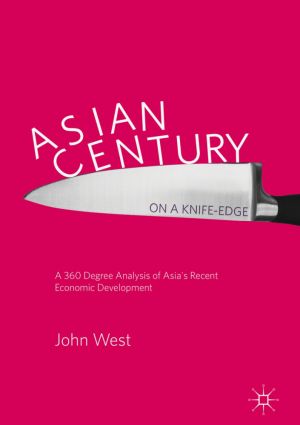
This book delves into the widely held belief that the 21st century will be the "Asian Century" by examining the Asia's rapid economic development in the post-war era and the challenges it faces in forging ahead of world leaders in the West.The impact of the current turbulent global political climate on Asia is critically analyzed, em...
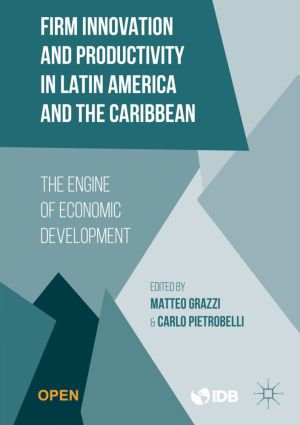
This volume uses the study of firm dynamics to investigate the factors preventing faster productivity growth in Latin America and the Caribbean, pushing past the limits of traditional macroeconomic analyses. Each chapter is dedicated to an examination of a different factor affecting firm productivity - innovation, ICT usage, on-the-job-training, fi...

This open access edited book captures the complexities and conflicts arising at the interface of intellectual property rights (IPR) and competition law. To do so, it discusses four specific themes: (a) policies governing functioning of standard setting organizations (SSOs), transparency and incentivising future innovation; (b) issue of royalties fo...
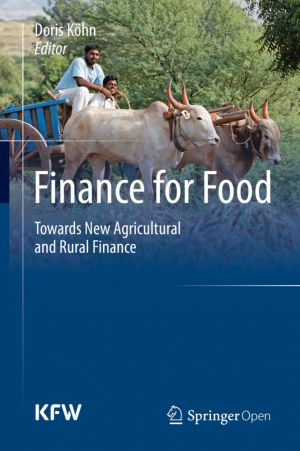
This book reflects the current state of discussion about agricultural and rural finance in developing and transition countries. It provides insight into specific themes, such as commodity value chains, farm banking, risk management in agricultural banking, structured finance, crop insurance, mobile banking, and how to increase effectiveness in rura...

The authors of this book advise the economies of the European Union to become more entrepreneurial in promoting innovation and economic growth. The authors propose a reform strategy with respect to several aspects to achieve this goal. Starting with the rule of law and the protection of property rights; the tax system; the authors deal with regulat...

This book presents a comprehensive analysis of biofuel use strategies from an interdisciplinary perspective using sustainability science. This interdisciplinary perspective (social science-natural science) means that the strategies and policy options proposed will have significant impacts on the economy and society alike. Biofuels are expected to c...

This edited volume examines how economic processes have worked upon social lives and social realities in Latin America during the past decades. Through tracing the effects of the neoliberal epoch into the era of the so-called pink tide, the book seeks to understand to what extent the turn to the left at the start of the millennium managed to challe...

The aim of this book is to document for the first time the dimensions and requirements of effective integrated groundwater management (IGM). Groundwater management is a formidable challenge, one that remains one of humanity's foremost priorities. It has become a largely non-renewable resource that is overexploited in many parts of the world. I...

This book provides answers to key open questions concerning competition policy in emerging economies, with a focus on South Eastern Europe. The contributions address two major issues. One is the design of competition policy and the national competition authorities that enforce it, including the topics of competition advocacy and state aid control; ...

How can we design more sustainable industrial and urban systems that reduce environmental impacts while supporting a high quality of life for everyone? What progress has been made towards reducing resource use and waste, and what are the prospects for more resilient material-efficient economies? What are the environmental and social impacts of glob...
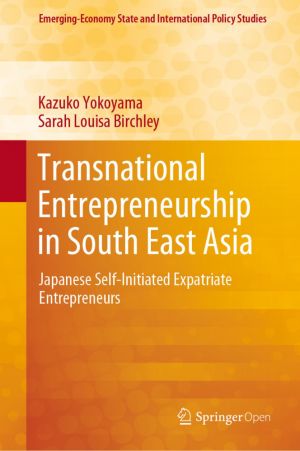
This book brings together narratives of inbound and outbound expatriate entrepreneurship in Japan to provide a comprehensive overview of international entrepreneurship in the region. Through in-depth interviews with expatriate entrepreneurs, policymakers, and additional stakeholders it provides the reader with a solid understanding of the current l...
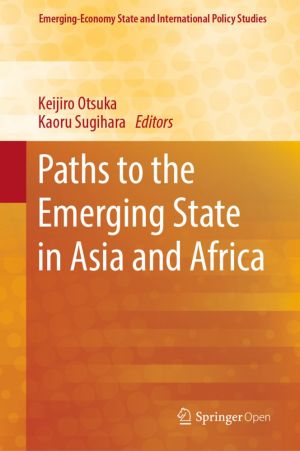
This book addresses the issue of how a country, which was incorporated into the world economy as a periphery, could make a transition to the emerging state, capable of undertaking the task of economic development and industrialization. It offers historical and contemporary case studies of transition, as well as the international background under wh...

At present, how to develop industries is a burning issue in Africa, where population growth remains high and economic development has thus far failed to provide sufficient jobs for many, especially young people and women. The creation of productive jobs through industrial development ought to be a central issue in steering economic activity across ...

This volume analyzes the economic, social, and political challenges that emerging states confront today. Notwithstanding the growing importance of the 'emerging states' in global affairs and governance, many problems requiring immediate solutions have emerged at home largely as a consequence of the rapid economic development and associate...

This book focuses on the global cycles of energy, water and carbon, which are not only the essentials of our main energy carriers, the fossil fuels, but are also the building blocks of life. The book offers an overview of the basic scientific facts and relationships that are needed to understand today's energy generation and use, how they rela...
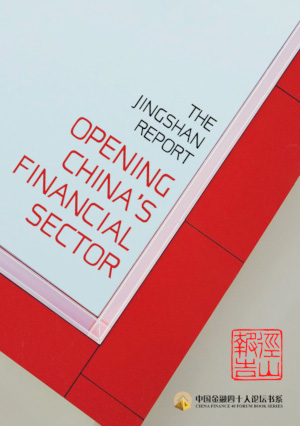
The Jingshan Report is a collection of research papers on key issues for China's financial opening, including reform of the RMB exchange rate regime, management of cross-border capital flows and financial support for the Belt and Road Initiative. Authored by leading experts in the relevant fields, the report examines the evolution, current sta...
